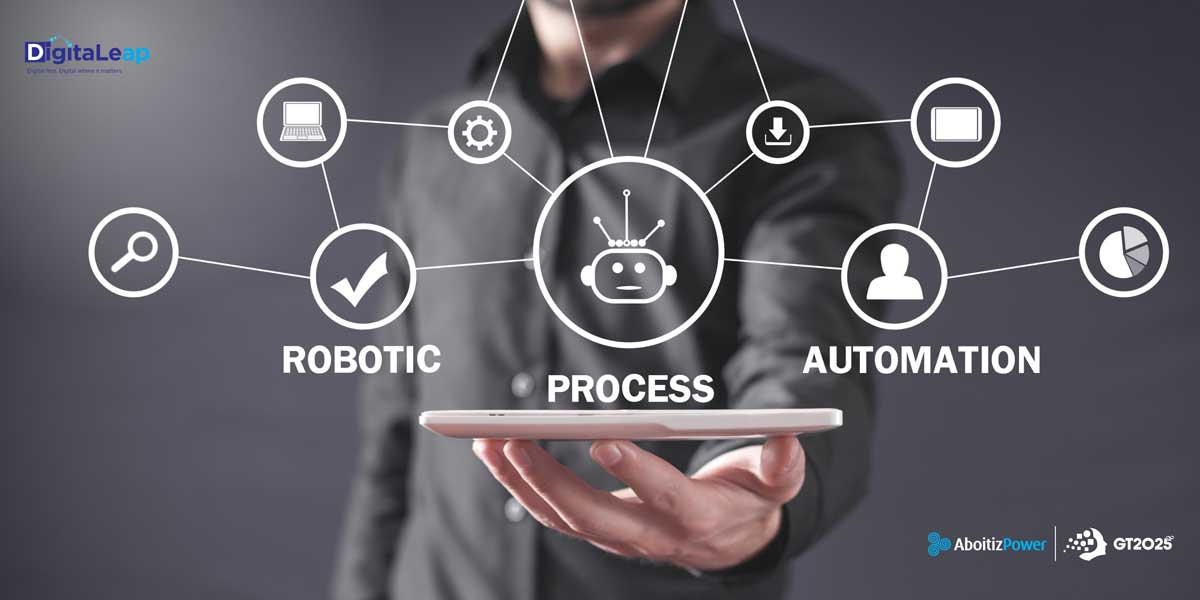
Aboitiz Power Corporation (AboitizPower) made a recent technological breakthrough after concluding its Robotic Process Automation (RPA) Bootcamp, wherein participants successfully developed 23 “robots” meant to improve the company’s customer service and overall business operations.
Among these is a robot created by a team member from Cebu-based distribution utility Visayan Electric that has the capability to consolidate high-volume data from various sources and generate accurate and actionable reports.
“This process involves more than 200,000 customer records. From more than 10 hours it normally takes us to finish the task, we were able to do it in less than half an hour with the robot. That’s more than a 95 percent improvement,” said Gratz Redoble, system operations supervisor at Visayan Electric.
The RPA Bootcamp trained team members from various AboitizPower business units, with some participants having minimal experience or knowledge in IT.
“The program really helped me gain new skills given that I had no background in programming. It opened a new interest that I would never have imagined indulging in,” said Marc Daryl Lao, Quality Assurance Specialist at Davao Light.
Not to be confused with mechanical robots, RPA technology can be described as “metaphorical software robots” that use artificial intelligence to deal with manual and repetitive tasks that would otherwise be very tedious to complete. These tasks may include capturing customer information, sifting through power outage data, and fast-tracking internal processes in the case of AboitizPower and its distribution utilities like Visayan Electric.
The newly developed robots have brought down turnaround and processing schedules across participating teams by an average of 50 percent, saving time, money, and effort and freeing up team members to do more value-adding work.
AboitizPower Vice President for Innovation and Digital Transformation Chat Balita said they intend to transform the organization into a progressive and digital workplace by nurturing the culture of innovation and “digital citizenship.”
“We envision our people ‘leaping’ from our ordinary roles into digital skills and competencies, to be future-ready and prepared to take on the tall order of disruptive technology. This is what it means to be a digital citizen,” she added.
The RPA Bootcamp is only one of AboitizPower’s DigitaLeap programs. It aims to integrate innovation and digital initiatives across all its business units and inculcate a digital-ready mindset within the organization. With the Aboitiz Group’s Great Transformation becoming the Philippines’ first “techglomerate,” further enablement programs will take place so more team members can be upskilled with digital competencies.
AboitizPower is the holding company for the Aboitiz Group’s investments in power generation, distribution, and retail electricity services. It advances business and communities by providing reliable and ample power supply at a reasonable and competitive price, and with the least adverse effects on the environment and host communities.
The company is one of the largest power producers in the Philippines with a balanced portfolio of assets located across the country. It is a major producer of Cleanergy, the company’s brand for clean and renewable energy with several hydroelectric, geothermal, and solar power generation facilities. It also has thermal power plants in its generation portfolio to support the country’s baseload and peak energy demands.
The company also owns distribution utilities that operate in high-growth areas in Luzon, Visayas, and Mindanao, including the country’s second and third largest private utilities.
AboitizPower, together with its partners, is the Philippines’ largest owner and operator of renewable energy based on installed capacity. In the next 10 years, the company will significantly expand its Cleanergy portfolio, in support of the government’s efforts to promote renewable energy in the country. AboitizPower will build an additional 3,700 MW of renewable energy, growing its existing Cleanergy capacity threefold by 2030.





















